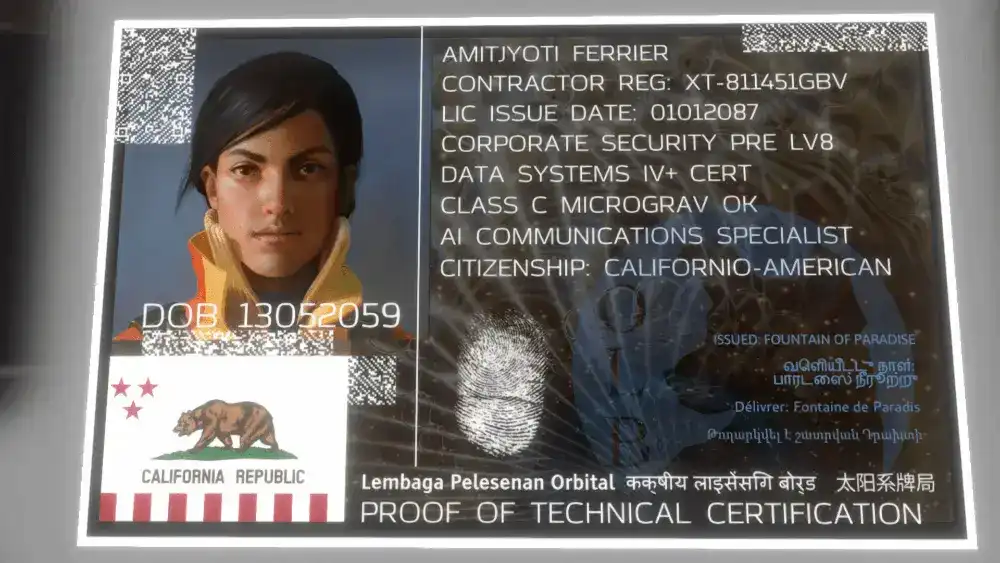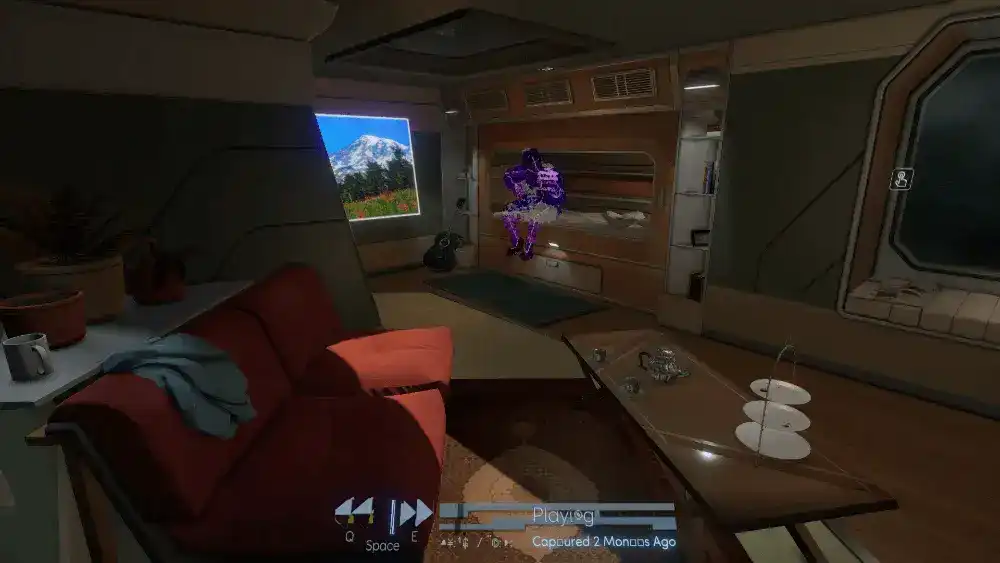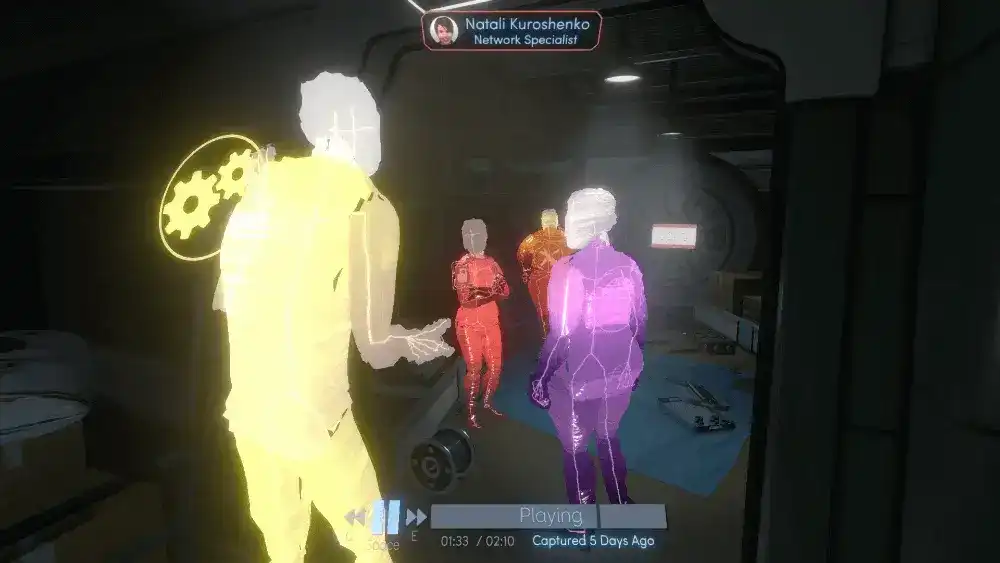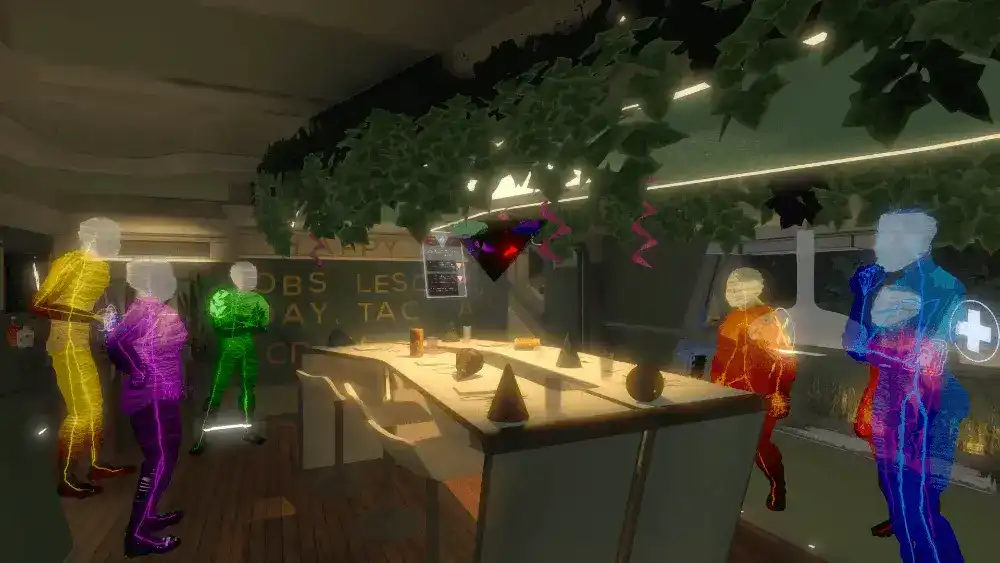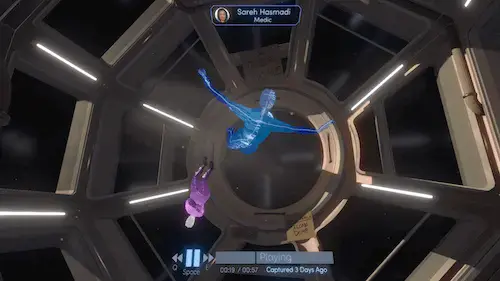Amitjyoti “Amy” Ferrier, the protagonist, is an agent sent by the company Venturis Corporation to board an orbital station, called Tacoma, which connects to a resort on the moon. Now abandoned and in chaos, your job is to retrieve the station’s data, which contains the crew’s memories of their last days on board via augmented reality surveillance that captured every move and spoken word.
If you couldn’t already tell, I love games that attempt to elicit empathy from the gamer, and rarely do I get a sci-fi story so steeped in character-driven narrative. Tacoma almost made me feel like I was intruding on someone’s diary — their intimate and most vulnerable memories opened up before me with just the touch of a button. I’m sure that’s what Amy would have felt too, as the agent accessing all the data.
Are you ready to board Tacoma? Buckle up, because memory lane is sometimes an ugly beast to ride.
Meet the Crew
As I collected data from the different bays of the ship, I got to know the fictional six-person crew — their names, their loves, and their lives as they worked alongside each other. I entered their rooms and listened to uncorrupted audio files of guitar practice sessions, or read text messages on their desktops that essentially said “I miss you lots”. With the coronavirus quarantine and social isolation happening, these kinds of texts hit harder now than ever. It’s easy to understand what kind of emotions are running through the sender and recipient’s hearts as they communicated throughout the lightyears. These are the things most people don’t see: the vulnerable, intense moments of life that happen behind closed doors.
For example, E.V. St. James is the ideal leader you’d want to see in any workplace. Reliable, levelheaded, and easy to talk to, it doesn’t take much guesswork to know that she’s a loving person. But as you’ll come to know, her compassionate exterior can’t hide the human underneath. Wracked with the unknown, she and every character dealt with the events that transpired on the Tacoma in the confidentiality of who they considered their most trusted friend.
In a game that has both AI and organic beings in a highly capitalistic world, these little moments made me think on what it really means to "be human".
Smile, You're On Camera
Scenes replayed as bits of surveillance data loaded, letting me in on birthday parties, arguments, and both mundane and serious conversations. Though the simple, moving silhouettes of the crew had no details other than color, voice, height, and icon indicating the person’s role in the crew, I was captured by the simple postures accompanied by heartfelt dialogue.
Sometimes, the data will load several conversations made up of different people at the same time. These conversations, though appearing simultaneously, don’t necessarily mean they happen in the same day, or even the same hour. In fact, there is an option to rewind the data so you can listen in and follow whichever conversation you want at the moment. Almost everything is dated, so the audio files and augmented reality footage are distinguishable and trackable, especially when digging through texts and other personal files stored in the computers.
By sifting through personal computer files, I uncovered each silhouette's face — and not just their faces, but also the faces of their families and friends. The artistic choice to make the portraits look realistic helped with the immersion, as if when we reach the year 2088, we could be one of many crews on an orbital station missing home just as much.
And the best part was that everything typed or voiced was written realistically. The writers did an amazing job conveying their ideas for every moment and piece of background information. I can’t get enough of the information I gleaned from invading the characters’ private spaces, just to know what happened to them.
Back to Reality
At its core, Tacoma is a game about relationships. Not just romantic relationships, but all the ones that come with the act of existing. Friends, families, lovers — this game has it all, and it wrapped me up in complexities that stayed with me for a long time. Human compassion is amazing in the wake of a crisis, and sometimes it takes something terrible to strengthen bonds. However, by no means do I believe terrible things need to happen for these things to occur, just that we’re at the world’s mercy — and each other’s. Tacoma does an awesome job of reminding us of not only the bad times, but also of the good moments that come in between the chaos.
With that being said, here’s where Fullbright pulled out textbook narrative design: Everything that related to a character was shown in the space that they occupied. Books that the characters would read indicated what kind of person they were based on the titles, or the conversations and files stored away in their desktops would let me know who they were before Tacoma. Everything has its place in the game, and it’s all to make you get attached and hope they’re all okay. And, to be honest, it worked on me.
Fullbright also made sure not to be obnoxious when pointing to the next part of the narrative. They gave me ample space to explore and left enough hints to piece together the ending for myself before the game’s conclusion could show itself to me. Tacoma is a brilliant work of art by Fullbright that really shows what immersive multi-modal storytelling can do.

